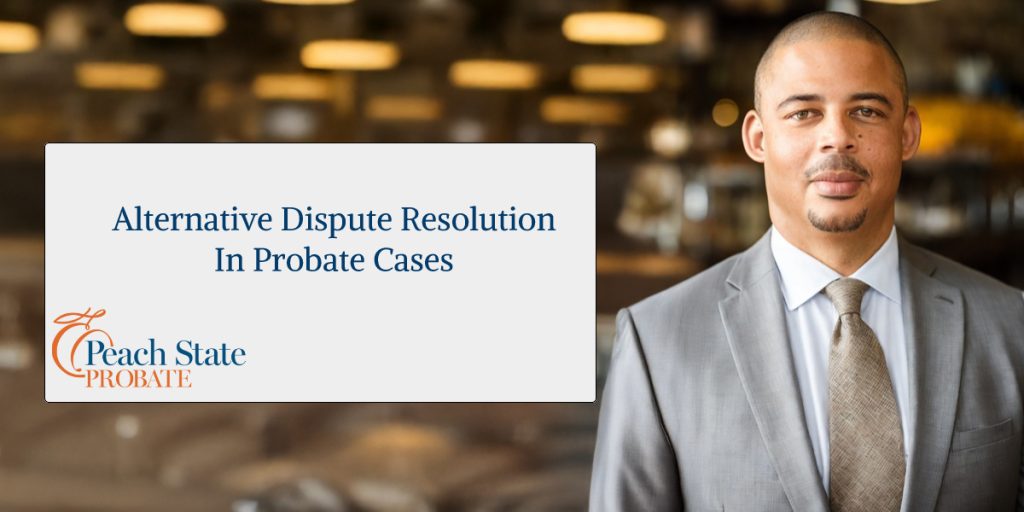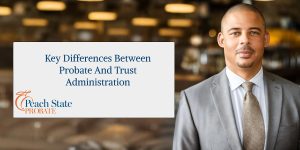When families face the loss of a loved one, sorting out the will and distributing assets can be an emotionally charged and challenging process. Disagreements can surface over the intentions of the deceased, how assets are divided, or the actions of the executor. Alternative Dispute Resolution is a practical approach designed to help families resolve probate disputes without resorting to lengthy and costly court battles. By offering a collaborative process, Alternative Dispute Resolution creates an environment for communication and compromise, which can make an otherwise stressful experience a bit lighter. Especially for those in Sandy Springs, GA, this option can be a thoughtful way to honor relationships and legacies while still addressing key legal concerns.
Understanding Alternative Dispute Resolution in Probate Cases
Alternative Dispute Resolution, often simply called ADR, refers to various methods of resolving conflicts outside the courtroom. In probate cases, this means families, executors, or beneficiaries use tools like mediation or arbitration to settle disagreements about a will, the validity of an estate, or asset distribution. For example, mediation involves a neutral third party who guides participants toward a mutually beneficial agreement. Arbitration, in contrast, is more formal, and the arbitrator’s decision is typically binding. If siblings are contesting the distribution of a parent’s estate, ADR may help them find a solution without the strain of a trial. Similarly, if disagreements arise about the interpretation of the will’s language, ADR can help the parties reach clarity and agreement much more efficiently—and, often, less expensively—than court proceedings. By promoting dialogue, ADR can save time, reduce stress, and allow families to maintain more positive relationships.
The Importance of Choosing Alternative Dispute Resolution for Probate Matters
The real power of Alternative Dispute Resolution in probate cases comes from its ability to transform contentious disputes into manageable conversations. Instead of facing years of litigation, families can resolve critical issues in a matter of weeks or months. This is especially valuable when the emotional weight of loss is already present. An unresolved legal battle can deepen wounds among surviving relatives, leading to lasting rifts that become difficult to mend.
Opting for ADR means choosing efficiency, privacy, and often a better chance of preserving family relationships. Probate court proceedings are public, which means family matters can become part of the public record. Alternative Dispute Resolution offers a more confidential and respectful setting where concerns can be voiced, and unique solutions crafted. The result is often not only a faster outcome but a more satisfying one as well.
- Scenario 1: Two siblings disagree on the sale of a family home. Through ADR, they reach a compromise—one buys out the other, and both walk away content. If left to the courts, it might have caused years of bitterness and delays.
- Scenario 2: An executor is accused of mismanaging assets. ADR brings all parties together, and after open communication, the executor agrees to a new plan that satisfies everyone. If litigated, trust among family members could have been permanently damaged.
- Scenario 3: Multiple beneficiaries question the fairness of the will. In an ADR setting, everyone discusses their reasons openly and agrees to an adjusted asset division, ending the dispute amicably. In court, the outcome could have resulted in complicated appeals and considerable legal fees.
How the Alternative Dispute Resolution Process Works in Sandy Springs GA
- Step 1: The initiating party or parties agree to use an Alternative Dispute Resolution method, such as mediation or arbitration, instead of traditional court litigation.
- Step 2: Select a neutral third party—often a trained mediator or experienced arbitrator—who will help facilitate respectful and effective communication between everyone involved.
- Step 3: All parties meet in a private, neutral location, share their perspectives, and work through concerns. The neutral facilitator helps guide the discussion toward a legally sound and mutually agreeable settlement.
Top Strategies for Navigating Alternative Dispute Resolution With Ease
Common Questions About Alternative Dispute Resolution in Sandy Springs GA
How Peach State Probate Law Group Helps During the ADR Process
At Peach State Probate Law Group, our team recognizes how deeply probate disputes can affect families. With years of dedicated experience guiding clients in Sandy Springs, GA and surrounding communities, we understand the value of resolution over conflict. We offer skilled legal counsel and act as advocates throughout the Alternative Dispute Resolution process, helping our clients navigate emotionally complex decisions while protecting their legal rights. Our attorneys provide comprehensive support, explain each step clearly, and are responsive to questions or concerns. Clients benefit from our empathy, discretion, and commitment to securing outcomes that protect relationships and legacies. By seeking compassionate and professional guidance during ADR, families can focus on healing and honoring the memory of their loved one—not the stress of a court battle.




